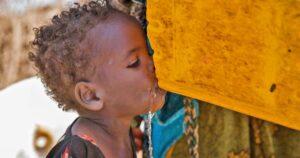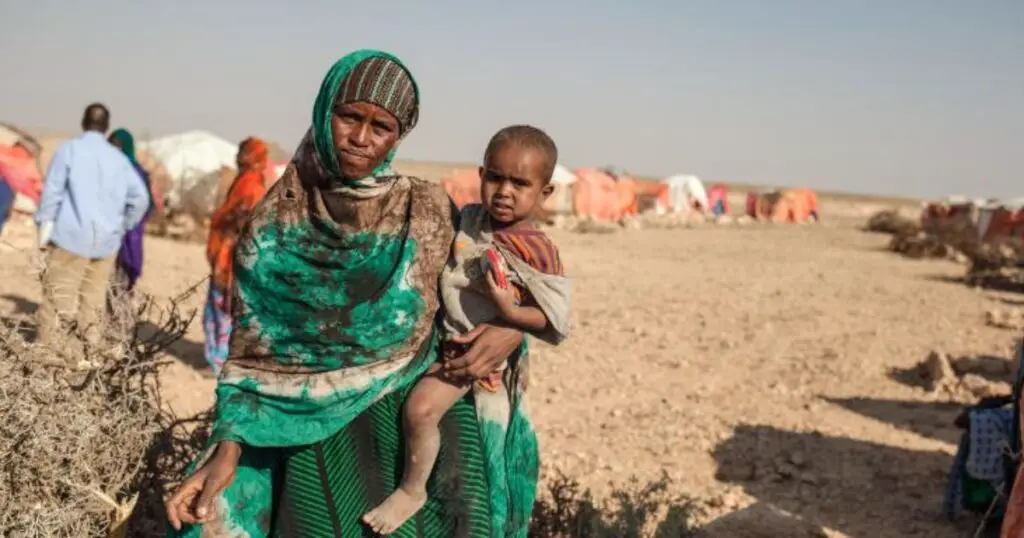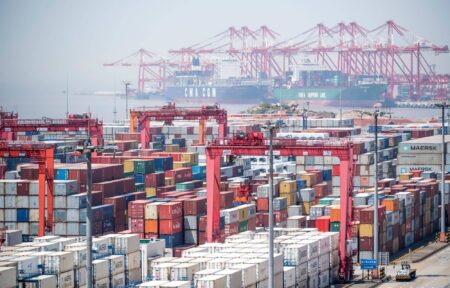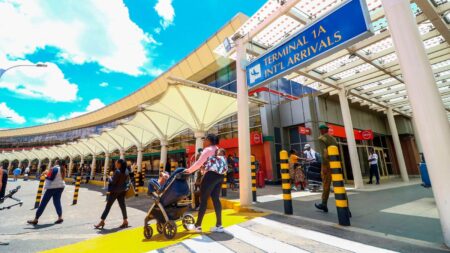- Somalia’s drought conditions have worsened, with experts warning that over 1 million people by April 2022 if urgent action is not taken
- The International Organization for Migration (IOM) said water scarcity is currently the worst in 40 years in some parts of the country, and boreholes and shallow wells are running dry
- Over 3.2 million people are affected, including nearly 245,000 people forced to abandon their homes in search of food, water and pasture, especially in the central and southern regions of the country
- UK’s Foreign, Commonwealth and Development Office estimated that the over 90% of the country’s population is experiencing drought conditions
A new analysis has noted that worsening drought conditions in Somalia could displace over 1 million people by April 2022 if urgent action is not taken.
On Tuesday, January 2022, the International Organization for Migration’s (IOM) said the widespread drought in the Horn of Africa has severely affected the country the most, forcing the government to declare a state of emergency in November.
In a report, IOM noted that water scarcity is currently the worst in 40 years in some parts of the country and boreholes and shallow wells are running dry.
“Livestock is dying, and prices of essential food commodities are unaffordable for most people. Over 3.2 million people are affected, including nearly 245,000 people forced to abandon their homes in search of food, water and pasture, especially in the central and southern regions of the country,” IOM said.
The institutions warned the conditions would probably worsen as Somalia faces the risk of a fourth consecutive failed rainy season from April to June.
Based on the current drought severity and an analysis of previous drought-related data from 2017, the report predicts two potential displacement scenarios. The first estimates 1,415,000 people might be displaced in the next six months, while the second estimates 1,036,000 for the same period.
IOM said that affected communities require urgent help, especially Internally Displaced Persons (IDPs) and migrants who face precarious living conditions and a lack of services in informal sites and settlements across the country. There are about 2.9 million IDPs in Somalia.
IOM Somalia Emergency Coordinator Mohamed Abdelaziz observed that immediate action is critical to save lives and livelihoods and avoid more significant needs in the future.
“If we act now, we can mitigate further displacement,” he said.
Historical friction
Data by the organisation suggested that drought conditions have historically created friction over grazing areas and water sources in Somalia, increasing conflict and the number of people forced to move.
Starvation, death threaten Horn of Africa stability
IOM said it was working closely with the government, UN agencies and local partners to address the acute water needs of IDPs, migrants, and vulnerable groups.
The organisation further revealed that water trucking, distribution of hygiene kits, and construction of boreholes and shallow wells are underway across 103 locations.
“These efforts aim to prevent a humanitarian disaster that would exacerbate significant existing needs driven by ongoing conflict and additional climate change impacts,” IOM noted.
IOM said the ongoing interventions would reach about 255,000 people by the end of March 2022.
The organisation appealed for more funds to expand its water, health, protection, camp management, shelter, and non-food items support.
Based on previous drought displacement patterns in Somalia, affected populations are likely to move from rural to urban centres, increasing the pressure in areas that are already hosting large numbers of IDPs and where services are scarce.
“We are focused on assisting communities where they live or in smaller towns near their place of origin, while simultaneously up-scaling preparedness activities in major urban centres,” said Abdelazim. “Further displacement into major cities will overwhelm critical services such as health care, leading to disease outbreaks and other major.
IOM’s efforts come days after the UK’s Minister for Africa, Vicky Ford MP, announced a $10 million package of UK support for Somalis affected by extreme drought during a visit to Kenya as part of a three-country East Africa visit.
The Minister said the funding would provide vital help such as cash to buy urgent food supplies and water to help vulnerable families across Somalia desperately suffering from relentless drought.

Coronavirus update: Africa food security threat mounts
The support is part of the £17 million package of UK support to countries in East Africa affected by extreme drought and flooding.
The Minister noted that drought severity in Somalia has continued to worsen, with over 90% of the country experiencing drought conditions.
“There are close to 5 million Somalis who are hungry, and a further 3.5 million in need of urgent humanitarian help this year because of successive poor rains and failed harvests. A further 2.6 million people have fled their homes due to conflict. The funding is expected to support almost 500,000 people in Somalia to access clean water and afford food supplies,” the Foreign, Commonwealth and Development Office said in a press release.
“This kind of early preventative action is crucial, as was learned from the 2016/17 drought in Somalia when early action and funding led by the UK helped to avoid a famine narrowly.”











